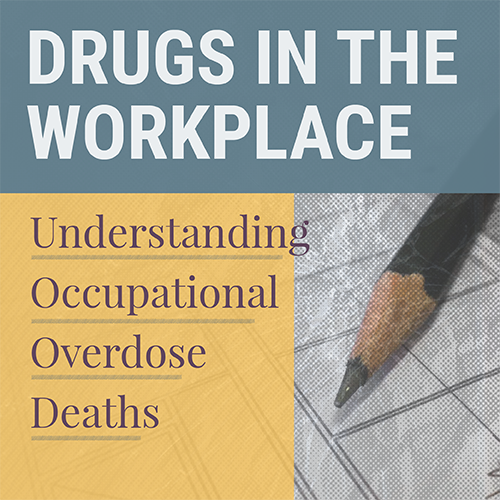US Drug Test Centers Blog
Non-DOT Random Drug Testing 101 for Employers | US Drug Test Centers
One of the most important aspects of a comprehensive drug-free workplace program is the ability to test your employees throughout the year randomly. Random drug testing has long been a standard in federally regulated Department of Transportation (DOT) testing programs and commonplace in our nation's workplaces. Employers, looking to implement a random drug testing program, often wonder where they should begin. There is much to consider when implementing a random drug testing program, but it doesn't have to be a scary task at all. Let's look at how a company should go about such a worthwhile program. Some objectives that employers should ask themselves might be:
What is it that you are trying to accomplish with a random program?
Maybe you want to deter employees from using drugs. It might be that you want to comply with a client contract you have been awarded. Perhaps you simply want to provide a safer work environment for your employees. Whatever the reason is, managing a random testing program ensures that you are doing the best you can to provide a safe and efficient workplace while deterring employee drug use.
What type of drug test should you perform?
Will you be conducting testing onsite or sending your employees to a collection site for the test? Are there state-specific regulations the limit the testing methods you can utilize? Will you choose to conduct a urine test or a hair test? The detection time periods for each specimen method should be reviewed when deciding on what appropriate testing method to utilize. Employers may elect to conduct a pre-employment drug test using hair (more extended detection time period), but for random testing, they may choose to utilize testing via urine instead (to test for more recent use).
How many drugs should you test for?
The drugs that you choose to test for as part of your random testing program can differ from that of your pre-employment testing panel. Do you see a need to test for additional drugs of abuse for a random drug test? There are many things to consider when you are looking at what drugs to test for, such as any evidence of use in your workplace, maybe trends in drug use in your state or region, etc. Employers are also cautioned to be aware of potential limitations from the Americans With Disabilities Act (ADA) when testing for prescription drugs, along with other state-specific restrictions that may limit what substances you can test for.
How often should we do random testing?
Most often, employers conduct their random drug testing selections on a quarterly basis, similar to the DOT regulations. It may be your preference to perform random selections on a monthly basis. Random selections should be consistent as to the frequency to the selections and the testing should be spread out throughout the testing period as much as possible to prevent any noticeable patters that employees will certainly use to their advantage. You want this to be as unpredictable as possible. A good example might be selections on a monthly or quarterly basis and testing would be spread out randomly throughout the month or quarter.
How are the selections going to be made?
Long gone are the days of putting everyone's name in a hat and randomly pulling names. Will you be conducting the random "pulls," or will your company use a third-party administrator (TPA) to manage your random testing pool of employees? If using a TPA, the company should clearly communicate with the provider to ensure the selections are conducted at a rate as desired by the company. Whether you decide to manage the random selections yourself or outsource that task to a TPA, it is incredibly important to utilize a scientifically valid method to select employees for testing, which may include the use of a random-number generated table, a computer or software-based random generator that is traceable to a specific employee name or identification number to avoid any accusations of bias, favoritism, racial or sex discrimination, or other general wrongdoing when managing such a program.
What changes do we need to make to the company policy?
Your company policy may need to be modified to include provisions for random testing, including notification to your employees, making them aware of the new policy you are implementing. There may be state-specific timing, notice or limitations to consider. Consulting with the company's legal counsel and/or industry experts is a great idea to assist in this area.
What are you going to do if someone tests positive?
What will the consequences be with positive drug tests? Do you have a second chance program or zero tolerance? Whatever your company has decided that detail should be included within your company policy.

How are you handling people using prescription medications?
This is a sensitive area for companies in that you want to avoid any risk of knowing an employee's personal medical information unless it, in some way, could prevent the employee from performing their job function safely. This should be the only area that companies would want to know about a possible safety concern rather than the specific drug the employee is taking. Companies should consult with their testing provider or Medical Review Officer (MRO) for additional assistance in dealing with prescriptions.
When should we implement the policy?
It is always a good time to make policy changes in this area in the first of the year. Sometimes it is necessary to implement a program more quickly and there is nothing wrong with starting a random testing program at any time so long as there are no state-specific requirements regarding the amount of notice you must provide prior to implementing new testing rules.
Conclusion
Implementing a random testing program is an excellent method to ensure your employees remain drug-free. Employers considering implementing a non-regulated random testing program should start by looking into a state-specific limitation or restrictions in each of the states they conduct business in. There are some states that limit or prohibit a company's ability to randomly test employees; some states limit to random testing only for "safety-sensitive" employees.
Next, does your state(s) have any requirements on implementation, policy, or notification requirements before you can begin testing? Some states require employees to be given a 30- or 60-day notice of policy changes and implementation so it is essential to check if your state requires such notification.
After making sure all state laws and regulations are covered, the company can make the appropriate updates to the company policy. Contact your TPS or drug testing service provider to get set up with the necessary testing panels and protocol in preparation for the program implementation. Provide notification to all employees on the intent to implement the random testing program. Wait the required time, if any. After the implementation of the program, the company should review the progress of the program at least annually to determine the value and success of the program and revise it as needed.























